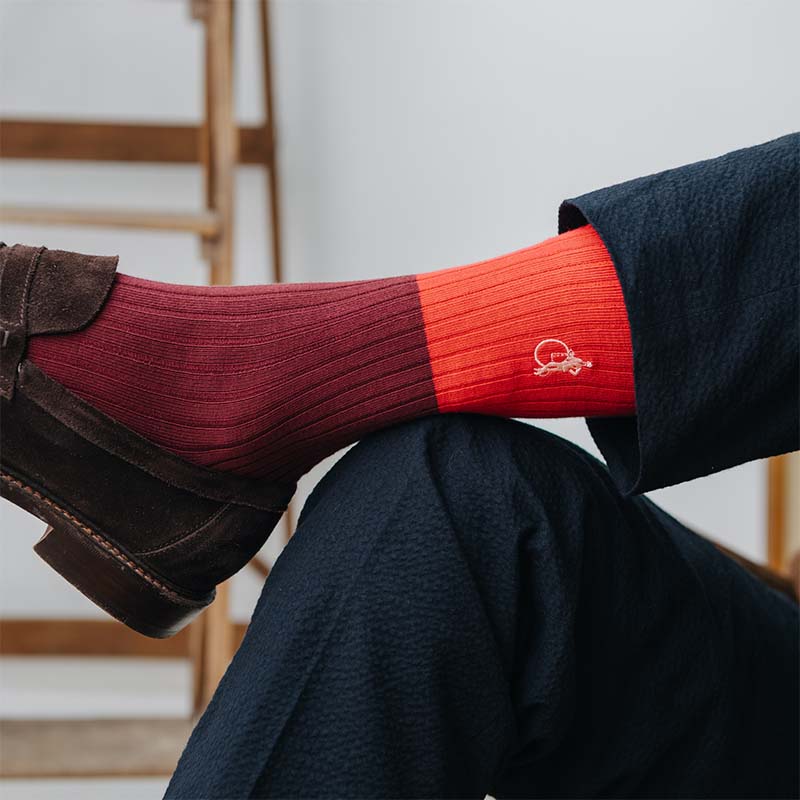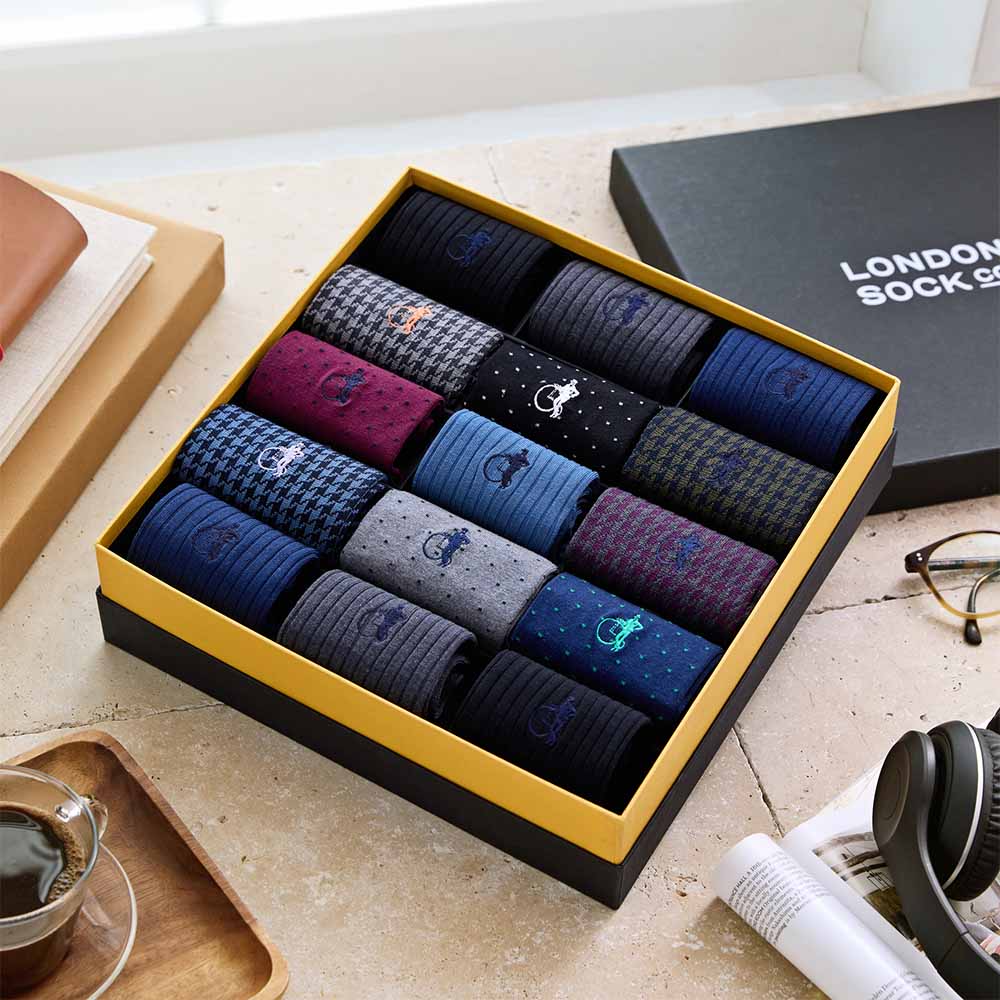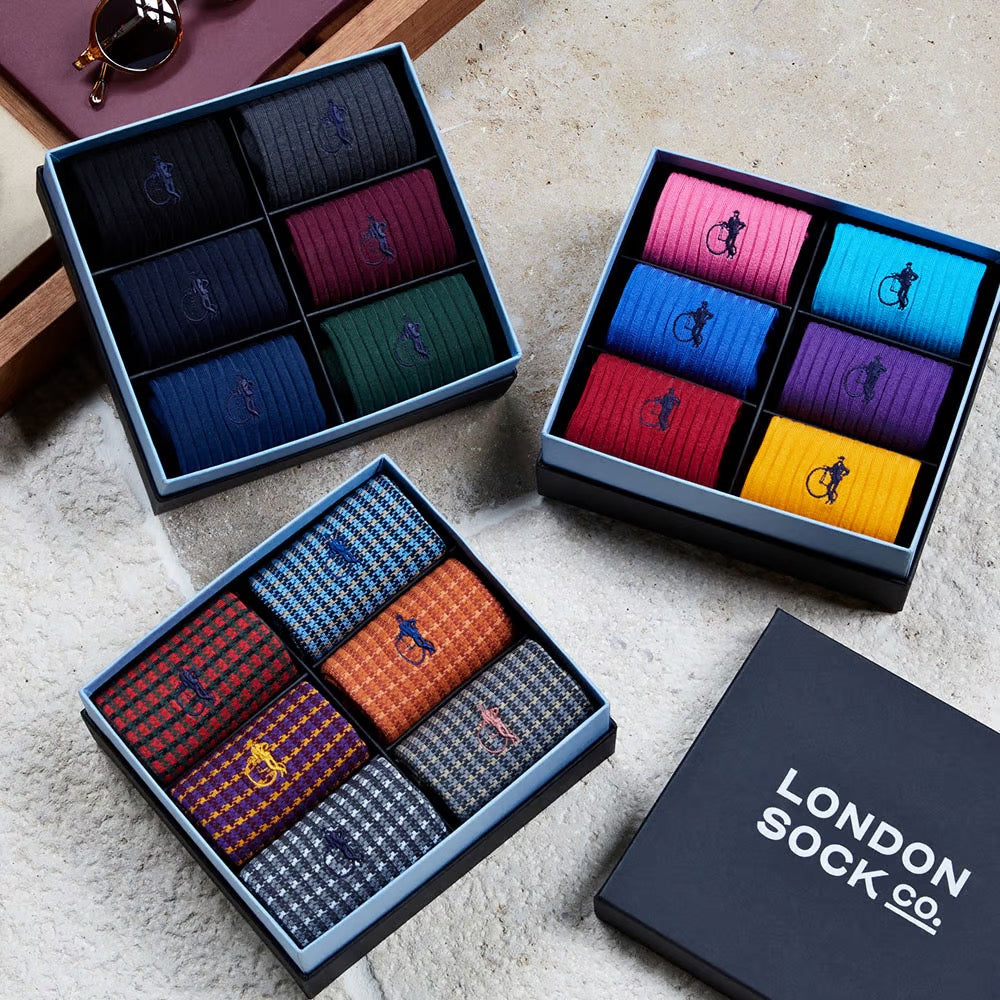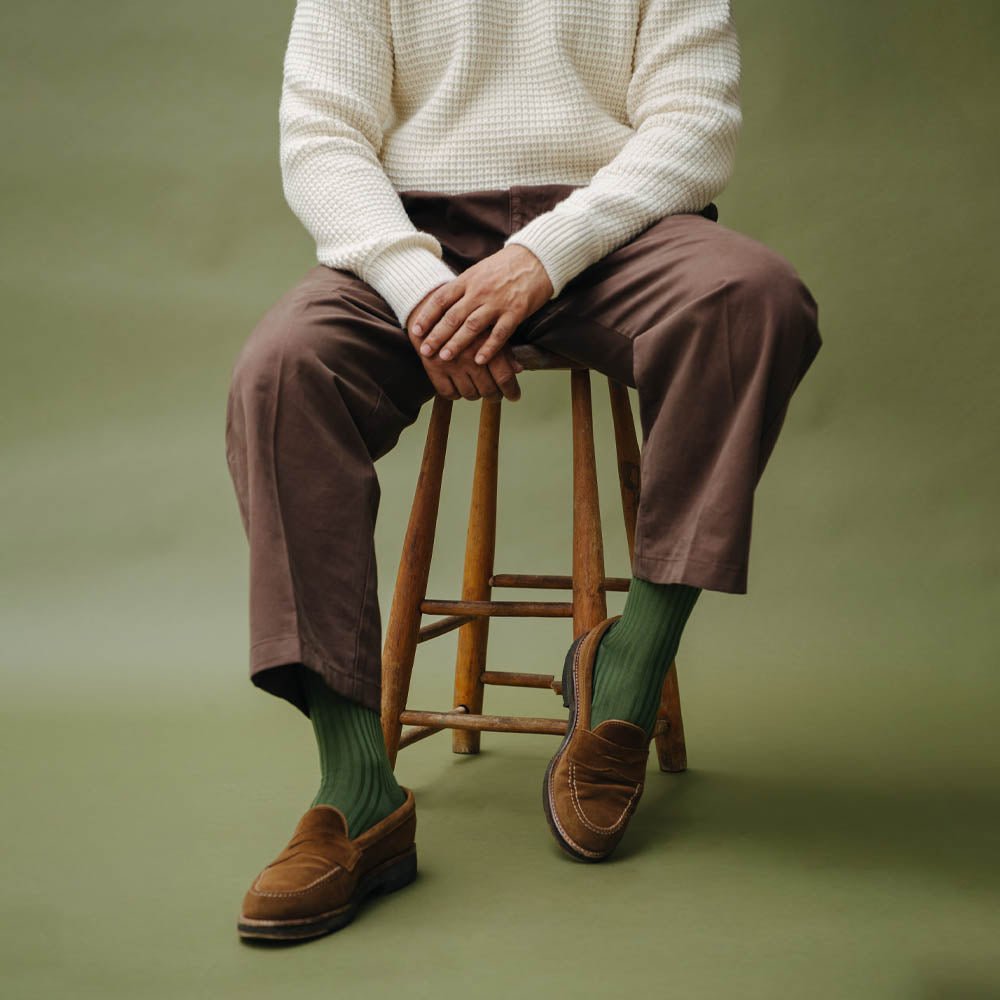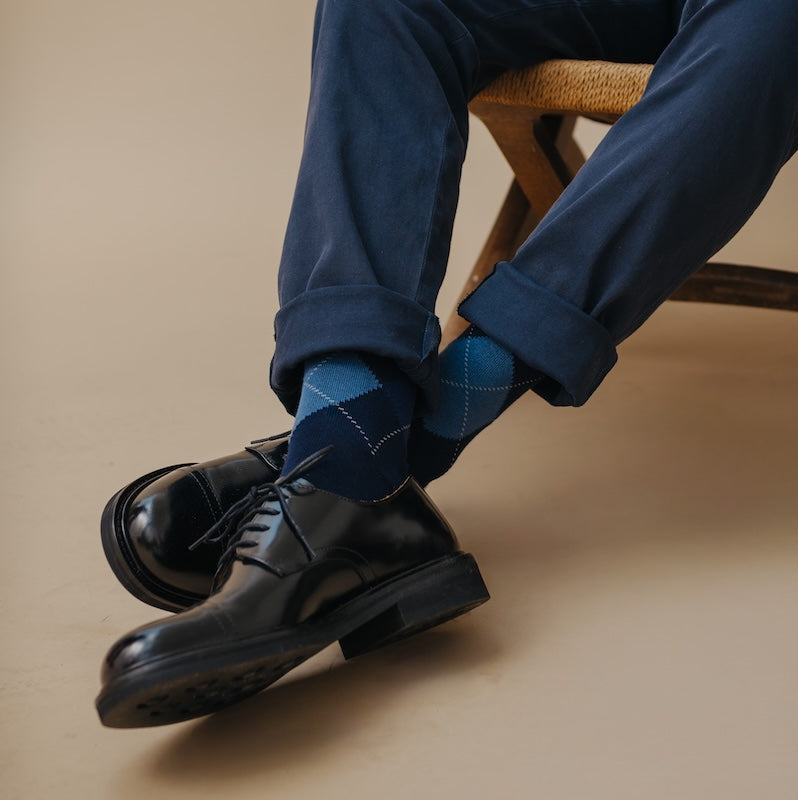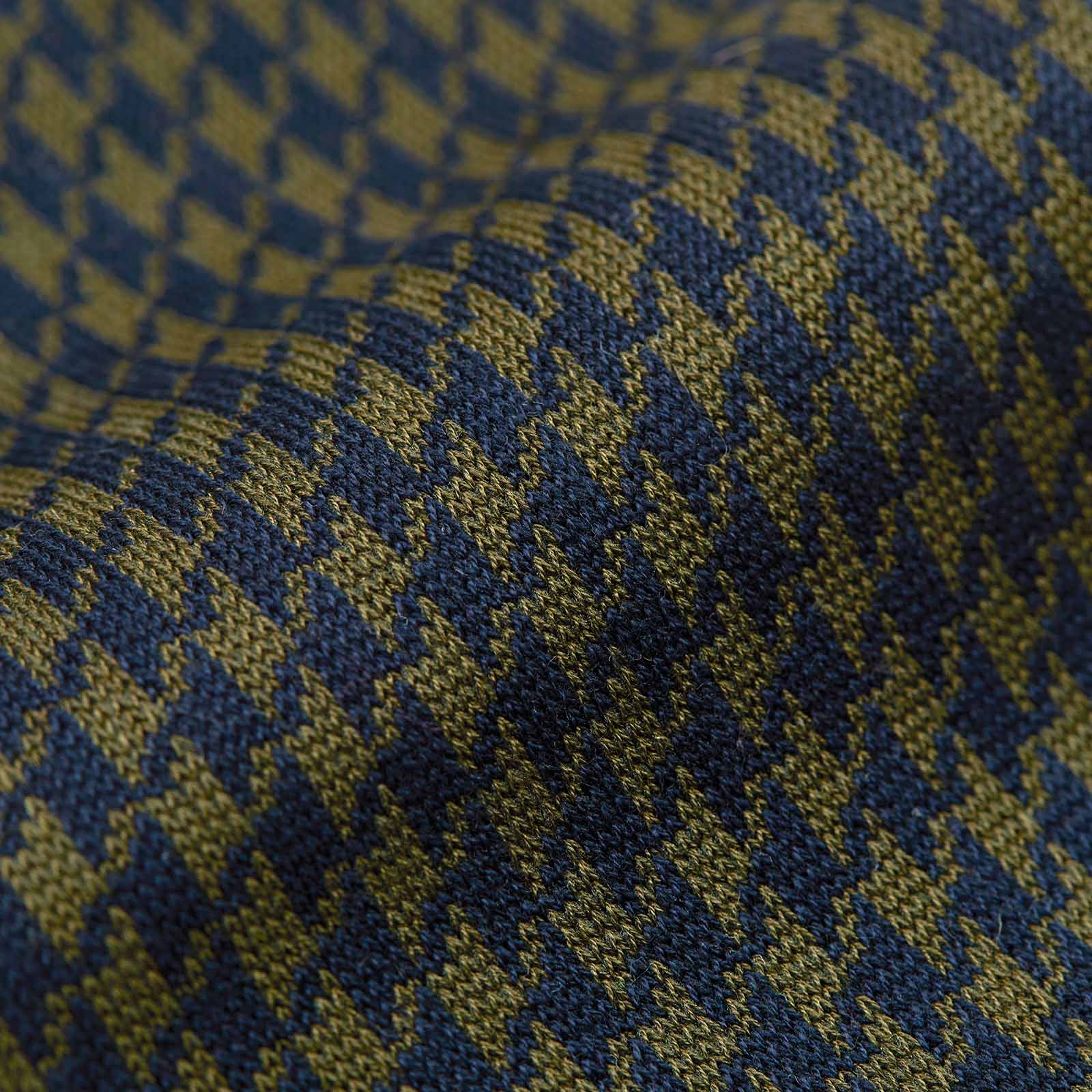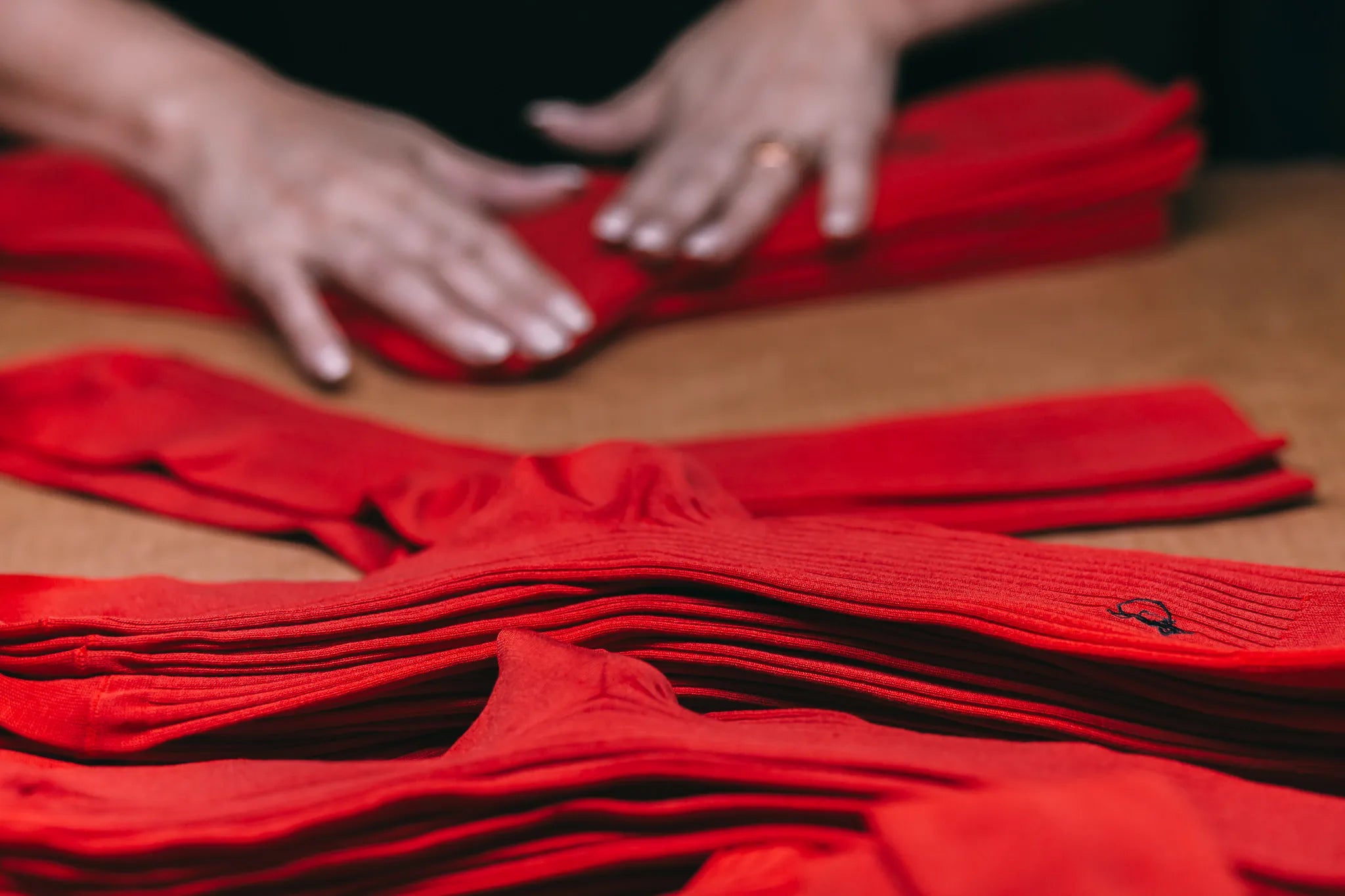
The perfect partners
Our factories
Almost all of our sock collections, including our flagship range Simply Sartorial, are made in a family-run factory in Portugal that meets all our quality and ethical standards. As a certified carbon free facility, they only use renewable energy sources when making our socks.
Our merino welly socks and cashmere ranges are crafted in Scotland, where all stages of the manufacturing process take place in Scottish mills. This means they minimise the carbon footprint of their finished products, while also obtaining 100% of their electricity from sustainable sources.
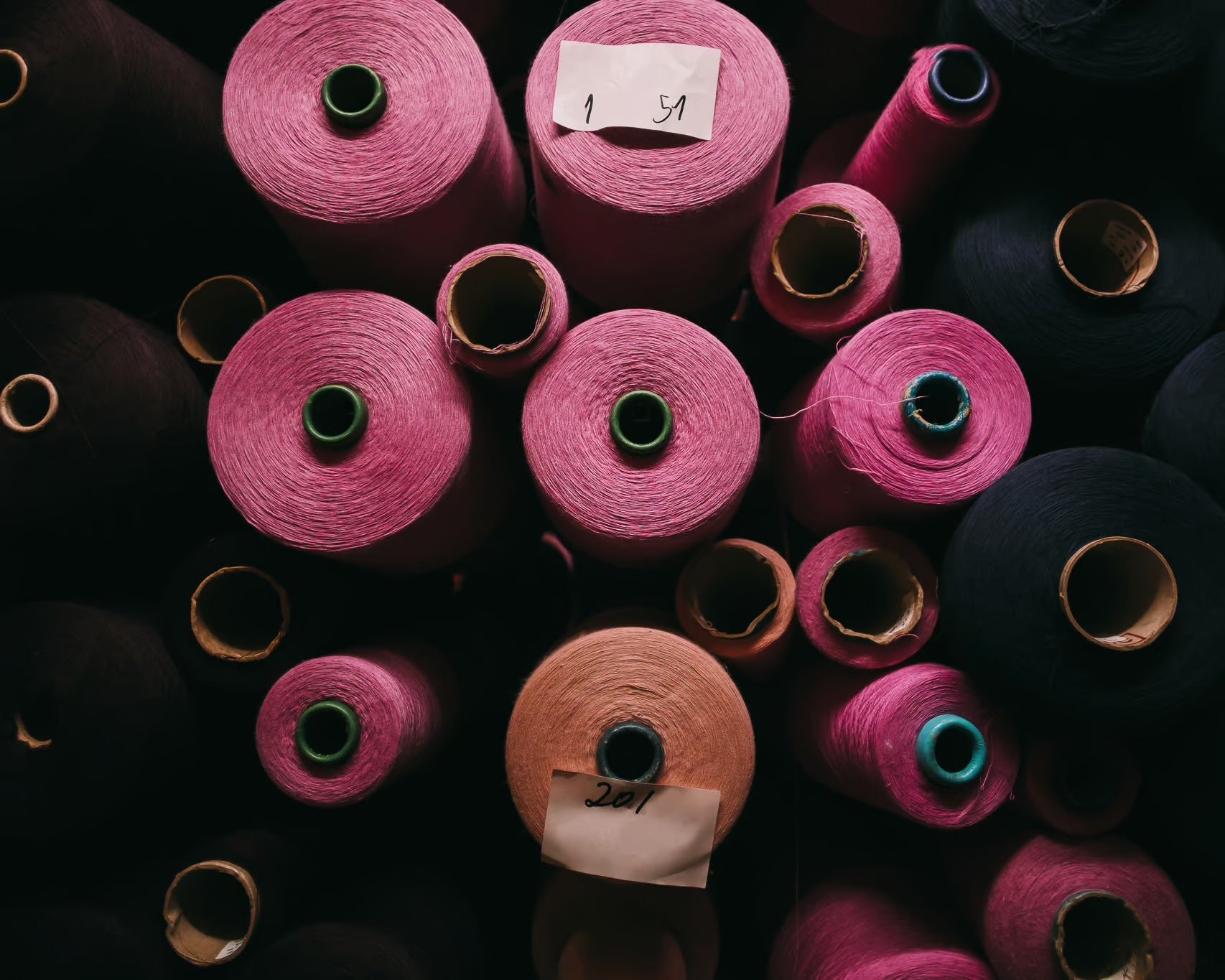
Quality first
Our materials matter
The quality and durability of our socks have taken precedence since day one. This will always be the case. As important to us is minimising the environmental impact of the materials that we use. We use recycled polyamide in all our pairs, and responsible, premium yarns like:
Scottish Lisle Cotton
Scottish Lisle cotton is obtained by mercerising the yarn, which strengthens the fibres and minimises the risk of shrinkage. This significantly increases the durability of our socks, helping the colours last wear after wear and ultimately minimising textile waste and energy usage.
Organic Cotton
Certified organic cotton is grown without using pesticides and fertilisers, ensuring that its cultivation and harvesting does not damage the land’s biodiversity, biological cycles and soil. The absence of harmful pesticides also protects the health of both farmers and consumers.
80% of organic cotton crops are grown in rain-fed farms which do not use irrigation, so they require much less blue water from lakes and rivers.
Lyocell
Lyocell is a very clever synthetic material that comes from renewable wood sources. It is as close to a no-compromise wonder material as you can get, which is why we chose it for our debut collection of boxer briefs. It is created using a closed-loop production process, which doesn’t create any harmful by-products that get released in the environment once the process is finished. It is importantly a quick and simple to create, meaning less energy and resources are used to make it.
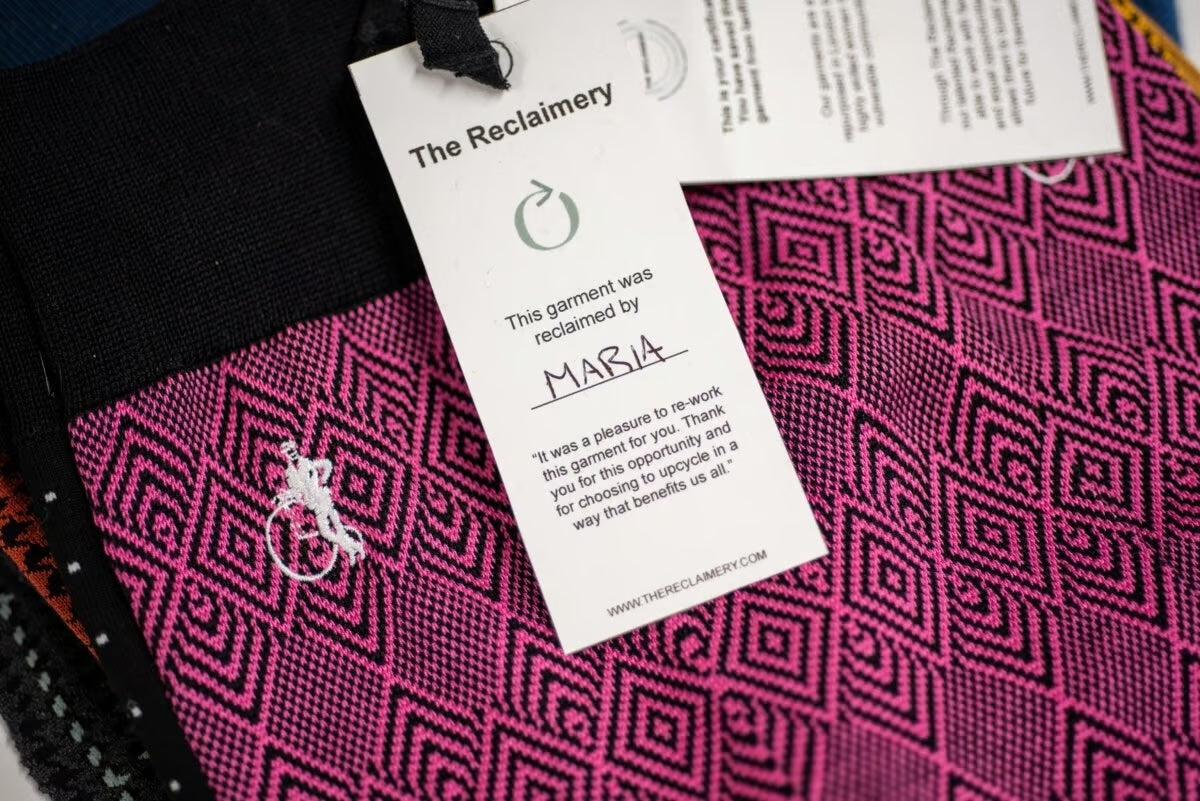
Final steps
Closing the Loop
When it comes to the end of our socks’ lives, our Sock Amnesty initiative is one of our sustainability pillars. Since its launch in 2018, we have collected over 14,000 pairs of unwanted socks from our customers and they have all been responsibly recycled or repurposed in order to reduce textile waste.
We’ve now taken this project to the next level by partnering with The Reclaimery. With a mission to transform fashion into a more circular industry while supporting positive environmental and social change, The Reclaimery works with local London communities to upcycle and repurpose clothing into new, fashionable and wearable pieces. With their help, we are turning thousands of unwanted socks into mittens and neck warmers for those affected by homelessness.
Not only are we able to create useful items for those in need by upcycling our socks, but repurposing textiles in this way is a sustainable way to reduce global CO2 emissions, water usage and other resources, by decreasing the need for new materials.
If you would like to know more about The Reclaimery, you can head to The Footnotes to hear from the founder, Juliet Herrera.
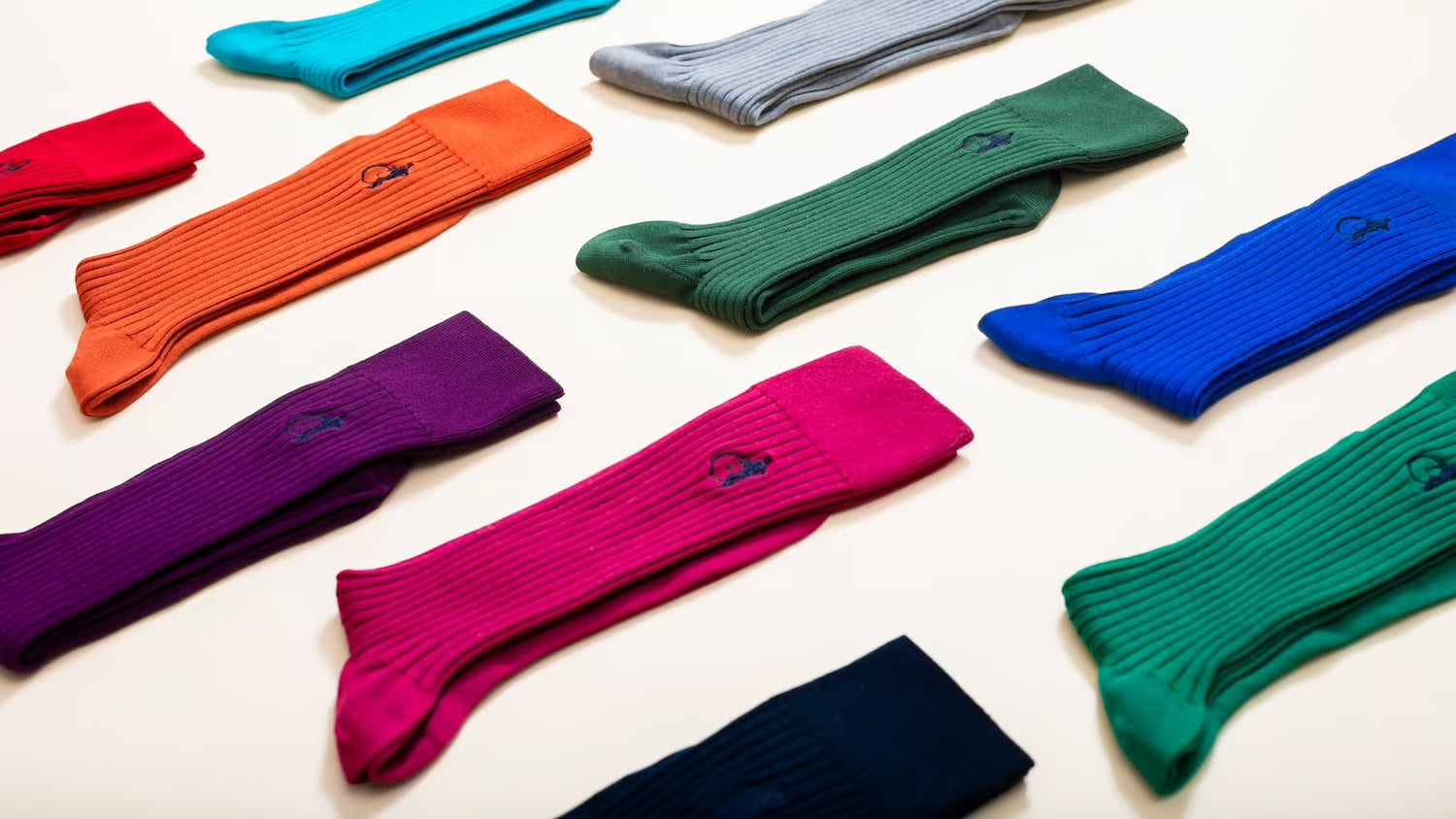
Sustainable steps
We’ve never shied away from big goals at London Sock Company and we are really proud that our ultimate mission is to become a Net Zero producer.
This concept of ‘Net Zero’ is all about balance. It’s about achieving an overall balance between our carbon footprint (the amount of greenhouse gas emissions produced as a result of our activities) and the amount of greenhouse gas emissions that we can help remove from the atmosphere.
But we want to go beyond the basic ‘offsetting by planting trees’ path. For us, the only way is to take a truly cradle-to-grave approach when it comes to the carbon footprint of our products. This means that we are accounting for the emissions produced across all stages of our supply chain – from the very beginning during cotton harvesting to end of life sock upcycling. This way we can calculate the true impact of our business on the environment – and we won’t miss any opportunities to make positive changes.
